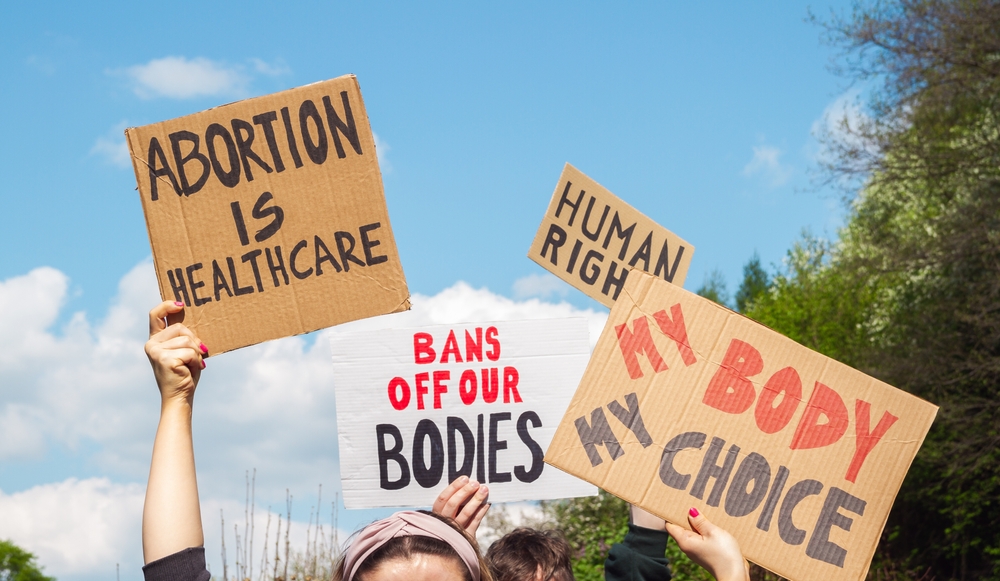It is hoped that the incoming Queensland Government keep Queensland on the path to safe and fully accessible reproductive health care for all women and pregnant people within the public sector.
Throughout the 20th century, abortion remained in the criminal legislation of all Australian states and territories, despite efforts to decriminalise laws and provide safe abortion care that began in the 1960s. Only in the 21st century has Australia seen real change in abortion law: from 2000 to 2024, all jurisdictions have decriminalised abortion. Although much remains to be done, there has been improved provision of safe accessible abortion care, including early medical abortion in many parts of the country, lessening of the stigma long associated with abortion, teaching of medical students and doctors about abortion, and promotion and publication of research around the topic.
However, possible threats to the provision of this care are starting to appear.
In the upper house of South Australia’s parliament in October 2024, legislation to force women seeking a late abortion to continue the pregnancy, give birth and either keep the child or have it adopted was defeated by ten votes to nine. In Queensland, the Katter’s Australia Party (KAP), which won three seats in the recent state election, has promised to bring bills that will first amend existing abortion legislation and then seek to repeal the decriminalisation bill passed by the parliament in 2018. The incoming Liberal National Party (LNP) Premier, David Crisafulli, initially appeared willing to allow a conscience vote by LNP members that would allow KAP-instigated legislation to pass. Then on 10 December 2024 in parliament, the Premier moved without notice that “the state parliament ban the introduction of any bill amending the state’s abortion laws for four years”, and this motion was approved by a parliamentary majority.

The history of abortion in Queensland
Until 2018, abortion provision in Queensland was restricted by the Criminal Code of 1899, sections 224-226, which made abortion a crime for any person attempting a procedure on “a woman with child”, the woman herself and any person assisting. There was a defence, in section 282 of the Code, to charges of abortion for medical practitioners, if they believed that continuing the pregnancy carried a serious risk to the health or life of the woman. However, in practice, most doctors in Queensland, as elsewhere in Australia, did not perform abortions, fearing prosecution and societal disapproval.
Following the McGuire Ruling (1986) in the Bayliss case of 1985, in which Brisbane doctor Peter Bayliss was charged with performing an abortion but was acquitted on the grounds of the pregnancy posing serious risks to the health of the woman, more Queensland doctors began to provide surgical abortions, as well as medical abortions once the drug mifepristone became available in Australia in 2006. These doctors could have relied on the Bayliss judgement had they been prosecuted but such legal uncertainty meant that abortion remained in a grey area, for doctors and for women, and was particularly difficult to access for women living in rural and remote regions of the state. Demands for decriminalisation and abortion law reform from the public grew in the first years of the 21st century but no bills were brought to the Queensland parliament in that time, despite such reforms in the Australia Capital Territory (2002), Victoria (2008) and Tasmania (2013).
In 2009–2010, a young Cairns couple was charged under sections 224-226 of the Code with undergoing an abortion. The case attracted massive national and international attention and eventually went to jury trial. The couple were acquitted but the public outrage expressed at the unwanted publicity endured by the two was a major factor in the decision of Cairns Member of Parliament Rob Pyne in 2016 to bring two private member’s bills to the unicameral Queensland parliament, both seeking to remove abortion from criminal legislation.
Both bills were eventually withdrawn but before that occurred, a major inquiry was conducted by a parliamentary committee to ascertain the views of Queenslanders on the practice of abortion and reforms of existing abortion laws. The committee received more than 1445 submissions, both written and in-person. Subsequently the matter of abortion law reform in Queensland was referred to the Queensland Law Reform Commission (QLRC) by then Premier Annastacia Palaszczuk, in mid-2017.
The report of the QLRC was tabled in the Queensland parliament in June 2018; it recommended modernisation of regulations around abortion provision in the state, removal of abortion from the Criminal Code, and inclusion of regulations around practice within health legislation. In October 2018, the Termination of Pregnancy Bill, based on the QLRC’s recommendations, was passed by the parliament and in December that year, the Termination of Pregnancy Act became law.
Developing practice guidelines
While such radical reform was not going to result in immediate changes to abortion provision within Queensland’s health system, in early 2019, Queensland Health (QH) began stakeholder consultations and workshops across the state to determine how best to incorporate abortion provision within the public sector, as well as develop practice guidelines for private providers, both clinics and general practitioners. This has resulted in the publication of several versions of the Queensland Termination of Pregnancy Guidelines (the Guidelines), the most recent appearing in September 2024.
The Guidelines include information about the nature and practice of surgical and medical abortion in both the first trimester and later pregnancy; care paths; expectations of women and providers around the performance of abortion; consent to the procedure; responsibilities of conscientious objectors regarding abortion provision; management of complications of abortion; and provision of safe access zones around abortion services. Principles of reproductive autonomy and health equity underpin the Guidelines, which are evidence-based and fully referenced.
Most abortions in Queensland, as elsewhere, take place before 20 weeks gestation but the difficulties in diagnosing certain lethal fetal anomalies can mean that definitive diagnosis may not be possible until after 22 weeks; the impact of certain maternal medical conditions on the pregnancy similarly may not be known until that stage. Termination of pregnancy after 22 weeks is legal, and accessible in a small number of Queensland hospitals, with the agreement of two doctors. These cases, which constitute 1% of all abortions, are distressing for parents and sometimes challenging for staff; they are managed by expert teams of obstetricians and other health professionals in accordance with the Guidelines, their work grounded on principles of dignity and respect. There is a need for greater education and explanation of this specialised provision of late abortion, among health professionals, the general community and politicians; the recent media attention on the topic has contained much misinformation, in Queensland, South Australia and elsewhere.
In Queensland, the foundational QH Termination of Pregnancy Action Plan 2022-2023 was developed in recognition that, particularly in rural and remote parts of the state, women still faced barriers in accessing abortion care. The Plan led to more services available in more locations, although much remained to be done.The subsequent Termination of Pregnancy Action Plan 2032, announced in 2024, further bolsters the commitment of QH to the establishment of abortion services in the public sector across Queensland and includes the appointment of a Senior Medical Officer with expertise in women’s reproductive health care in every health service. Both Plans followed further consultation with service providers and consumers.As part of the 2032 Plan, the outgoing Miles government has allocated $41.8 million to extend safe accessible abortion services to every corner of the state. Along with the introduction of new services and improvements to existing ones have come some lessening of abortion stigma, more teaching of medical students and junior doctors and the gradual incorporation of abortion care into mainstream holistic women’s health care.
The consultations with health professionals and with Queenslanders generally, that have led us to this stage of reform and service provision have been comprehensive; in Queensland, we are currently on the path to safe and fully accessible reproductive health care for all women and pregnant people within the public sector. I hope that the incoming government keeps us on that path. While the ban on changes to abortion legislation may be in place for four years, that does not mean that abortion provision and services cannot be diminished or never implemented. Abortion care is health care, and we must remain vigilant in protecting and expanding that health care.
Caroline de Costa was professor of obstetrics and gynaecology at James Cook University, Cairns, 2004-2021; she is currently adjunct professor, The Cairns Institute, JCU
The authors do not work for, consult, own shares in or receive funding from any company or organisation that would benefit from this article, and have disclosed no relevant affiliations beyond their academic appointment.
The statements or opinions expressed in this article reflect the views of the authors and do not necessarily represent the official policy of the AMA, the MJA or InSight+ unless so stated.
Subscribe to the free InSight+ weekly newsletter here. It is available to all readers, not just registered medical practitioners.
If you would like to submit an article for consideration, send a Word version to mjainsight-editor@ampco.com.au.

 more_vert
more_vert